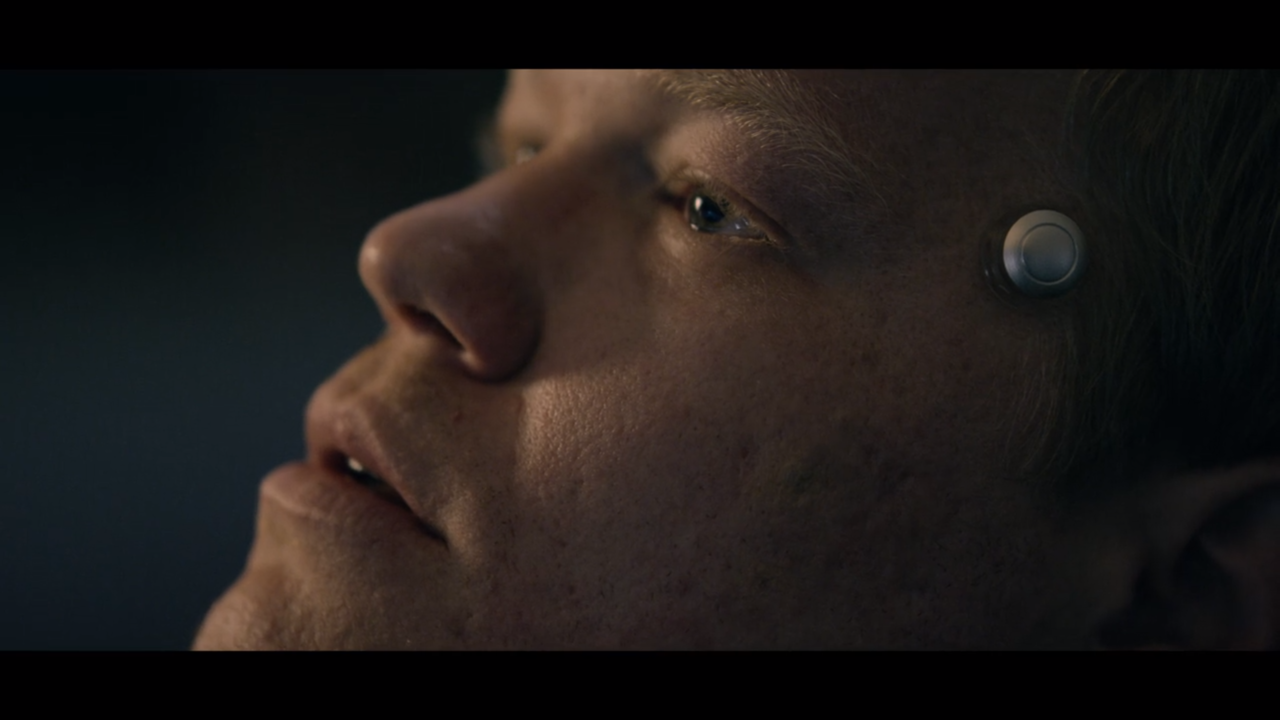The comparisons are understandable--inevitable, even--but Electric Dreams' psychedelia-infused cosmic clouds and wire tangles are not the antidote to Black Mirror's technophobia poison. Electric Dreams does strive for something different than its predecessor in modern sci-fi anthology shows, but it's not the anti-Black Mirror.
Black Mirror Season 4 debuted on Netflix in time for holiday-breakers to enter the new year sweating whether killer machines, child murderers, and dystopian dating apps will do us in first, or we'll simply block out reality with brain implants or get trapped in computer chips and tortured for all eternity. It's grim stuff, but we eat it up because deep down we feel we deserve it.
Enter Philip K. Dick's Electric Dreams, a joint production between the British Channel 4 and Sony Pictures Television, whose US rights were bought by Amazon, echoing Black Mirror's journey from Channel 4 to Netflix over the last few years. The show debuted its first six episodes in the UK late last year, with the full season landing on Amazon in the US this week.
In interviews, Electric Dreams' creators have been perfectly able to articulate how the newer show stands out from Black Mirror. "The future doesn't have to be terrible," executive producer Michael Dinner told GameSpot in an interview last year.
That may be true, but Electric Dreams' visions of the future often are. In the very first episode, "The Hood Maker," humans who've developed telepathy are relegated to third-world ghettos and referred to as "it" instead of "he" or "she." In "Crazy Diamond," lab-made humans have an expiration date and growing your own vegetables is illegal. In "Real Life," virtual reality tech is so advanced it can make you question which life is really your own, while "Human Is" sees a future where a space-faring humanity invades other planets and exterminates alien species in pursuit of valuable, rare resources--like oxygen.
The future may not be terrible by necessity, but let's be honest: It probably will be. As an author, Philip K. Dick was well aware of this, and any adaptations of his work--Minority Report, Paycheck, Blade Runner, Total Recall, The Man in the High Castle, and yes, Electric Dreams--won't be able to escape that.
However, Electric Dreams does stake out its own place in this space. Black Mirror is almost always fettered by its obsession with technology, usually landing somewhere in the near future so its temple-mounted doodads and shrapnel-spewing robot dogs remain partially recognizable to us.

Electric Dreams spans the wide breadth of Dick's short stories, from the contemporary noir thrillers to far future, traditional sci-fi, where humanity has expanded throughout the stars, and Earth is just a distant memory.
It's also not limited by what's plausible or realistic. Electric Dreams doesn't need to chart a path from our present to each episode's version of the future, prodding that vulnerable soft spot in all our brains that screams back, "This could really happen!" Whether in an imaginary town in "The Commuter" or the weepy spiritual overtones of "Impossible Planet," Electric Dreams is free to dip its toes into the unbelievable, the supernatural, and whatever else it wants.
In that way, Electric Dreams does manage to stand out from Black Mirror. Each new episode is less a preemptive admonishment--What fresh dystopian hell did we get ourselves into this time?--and more a genuine journey. The question becomes: Where are we headed next? Black Mirror may embody contemporary, predictive, dystopian science fiction, but Electric Dreams does a fantastic job capturing the essence of Dick's era of golden age sci-fi.
The future may still be terrible, but in Electric Dreams' visions there remains potential for improvement. It may not be the anti-Black Mirror, but like all of Dick's work throughout the 20th century, it definitely has something to say.
Another Crab's Treasure Is A Soulslike 3D Platformer | GameSpot Review Stellar Blade Review Super Monkey Ball Banana Rumble - Official Multiplayer Features Trailer Nintendo 64 – April 2024 Game Updates – Nintendo Switch Online Gori: Cuddly Carnage | Meow Launch Date Announcement Trailer PUBG | Erangel Classic Returns Genshin Impact - "Arlecchino: Afterglow of Calamity" | Collected Miscellany Marvel Rivals - Official Loki Character Reveal Trailer | The King of Yggsgard Fortnite Festival - Official Billie Eilish Cinematic Season 3 Trailer Remnant 2 - The Forgotten Kingdom | DLC Launch Trailer Stellar Blade - Official "The Journey: Part 2" Behind The Scenes Trailer | PS5 Games Dead by Daylight | Tome 19: Splendor | Reveal Trailer
Please enter your date of birth to view this video
By clicking 'enter', you agree to GameSpot's
Terms of Use and Privacy Policy
